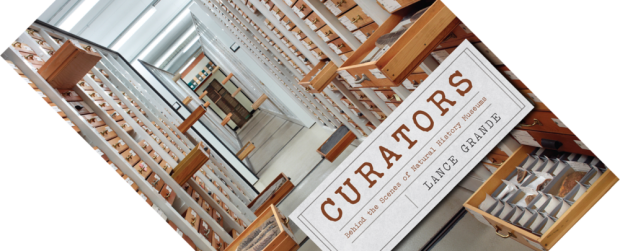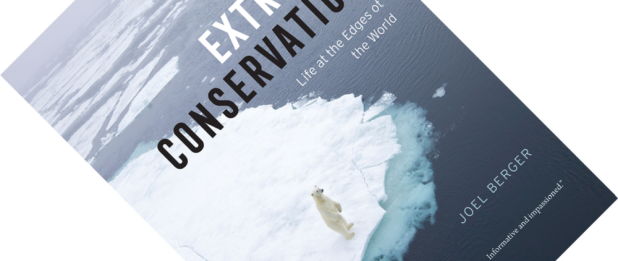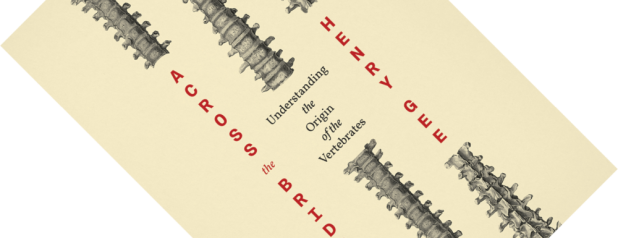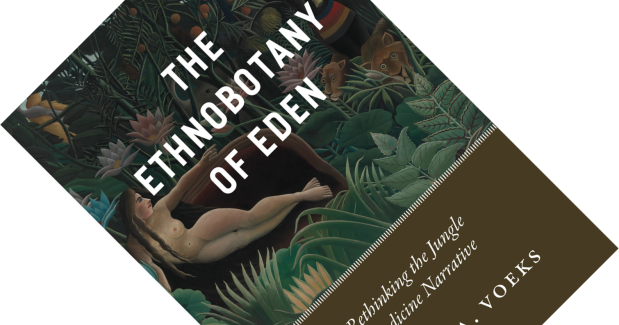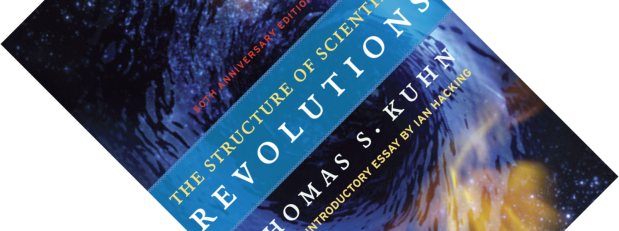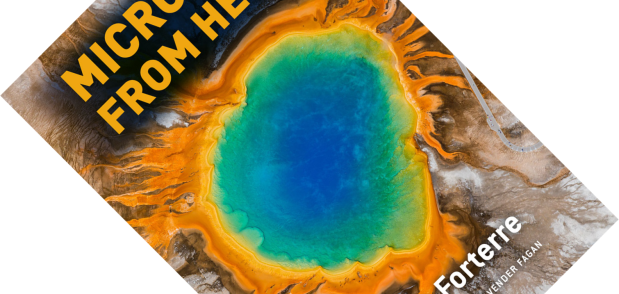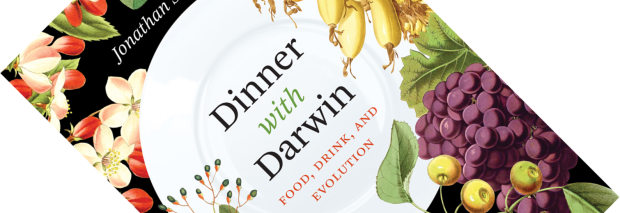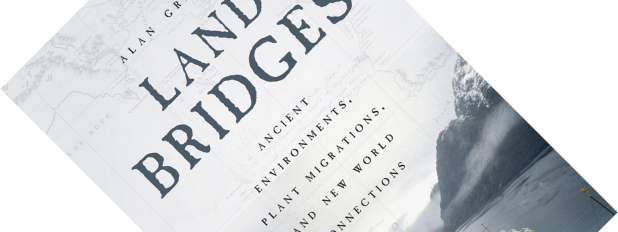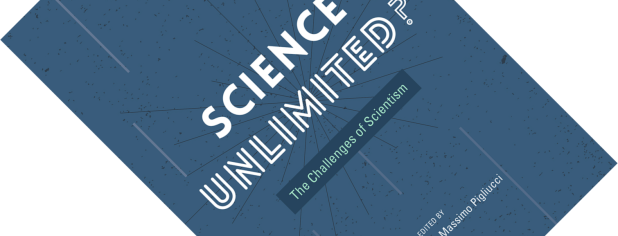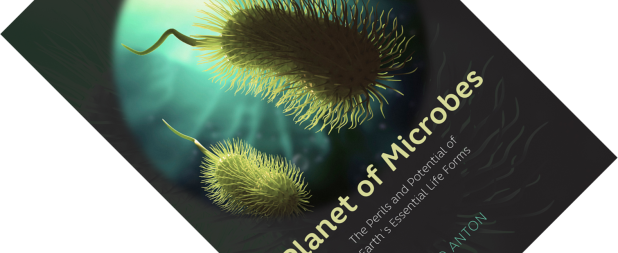One fond memory I have of studying biology at Leiden University in the Netherlands was a behind-the-scenes tour for first-year students at the then brand new location of Naturalis Biodiversity Center. This included a tour of the main tower housing the scientific collection normally off-limits to the general public. This is the domain of the museum curator, but their work involves much more than spending time amidst storage cabinets. To get a good idea just how diverse this job is, look no further than this lively and beautifully presented memoir. Here, Lance Grande tells of his career of more than thirty years as a curator at the Field Museum in Chicago.
University of Chicago Press
Book review – Extreme Conservation: Life at the Edges of the World
Wildlife conservation and field biology are not for the faint of heart. Studying wild animals in their natural habitat brings with it long periods away from home, lack of comfort, and many logistical challenges. It calls for a certain kind of grit. But equally, it requires a persistent mindset to fight the cause of wildlife when conservation clashes with company’s bottom lines, political aspirations, and the wants and needs of an expanding world population. Even amongst this hardened bunch, few people would voluntarily venture into icy wastelands to study the animals existing at the edge of the world. Joel Berger is one of them and Extreme Conservation is his story, equal parts adventure narrative as it is a meditation on the value of wild nature.
Book review – Across the Bridge: Understanding the Origin of the Vertebrates
When you think of an animal, you will most likely think of a vertebrate. Since we are animals with a backbone ourselves, it is not strange that that which is closest to us comes to mind first. But when and how did vertebrates evolve? To answer that question, Nature editor Henry Gee takes a good hard look at invertebrates, convincing the reader that they are not all equal. More than 20 years ago, Gee wrote Before the Backbone: Views on the Origin of the Vertebrates, which took a look at historical explanations for the origins of vertebrates. Which group of invertebrates is closest to us remains a topic of active research and Across the Bridge brings readers up to date with our current thinking.
Book review – The Ethnobotany of Eden: Rethinking the Jungle Medicine Narrative
When I reviewed the book Defending Biodiversity: Environmental Science and Ethics, one of the reasons that was discussed as to why we should protect nature was the possibility of undiscovered pharmaceutical drugs. Seasoned ethnobotanist Robert A. Voeks shows that this so-called jungle medicine narrative has a long history. Though partially true, it equally contains parts myth, sentimentality, and nostalgia. However, if you are expecting a sceptical critique of superstitious indigenous practices – I was initially wondering whether the book would – no, this book delivers something far more interesting. Without belittling traditional knowledge, Voeks instead exposes the flaws in our interpretation and delivers a nuanced and fascinating ethnobotanical history lesson to boot.
Book review – The Structure of Scientific Revolutions (50th Anniversary Edition)
This review is part of a double bill. Cold Spring Harbor Laboratory Press recently published How Scientific Progress Occurs: Incrementalism and the Life Sciences. In it, Elof Axel Carlson explores the relevance to biology of the ideas Kuhn formulated in his book The Structure of Scientific Revolutions. This is one of those classics already on my to-do list, so I have read both books back-to-back and will review them one after the other. Anyway, who is this Kuhn and why should you care? Virtually everyone will have heard the buzzwords “paradigm” and “paradigm shift” – and for that, you can thank Kuhn.
Book review – Microbes from Hell
I recently read about the American microbiologist Carl Woese (1928-2012) and his discovery of a completely new group of single-celled organisms, the Archaea, in Quammen’s book The Tangled Tree: A Radical New History of Life. These mysterious microbes thrive under extreme environmental conditions, so I was intrigued and keen to find out more. The French microbiologist Patrick Forterre here describes these microbes, the research that led to their discovery, and the questions and answers this has thrown up. Originally published in French in 2008 as Microbes de l’Enfer, The University of Chicago Press has now made this book available in English to a wider audience.
Book review – Dinner with Darwin: Food, Drink, and Evolution
Who could refuse such an invitation to dinner? In fourteen short chapters, Dinner with Darwin provides a smörgåsbord of topics on the role of food in human evolution and vice versa, many of which have been covered here in recent reviews. This is Jonathan Silvertown’s fourth book with the University of Chicago Press, and based on this, I would love to read his other books as well. Care to join me at the table?
Book review – Land Bridges: Ancient Environments, Plant Migrations, and New World Connections
Before plate tectonics became an accepted idea in geology, Lyell’s doctrine of uniformitarianism still ruled supreme (see my review of Cataclysms: A New Geology for the Twenty-First Century for a short introduction). A corollary was that the continents supposedly had always been where they are now. One observation scholars had to explain away was that the same fossils occur on both sides of the various oceans. Looking at maps, some people noticed the thin strip of land connecting North and South America and concluded that land bridges must have formed and sunk beneath the waves at just the right times in history to enable migrations (see Four Revolutions in the Earth Sciences: From Heresy to Truth for more details). As explained in The Tectonic Plates are Moving!, we know better nowadays. Nevertheless, the concept of land bridges is still alive and well today, and palaeobotanist Alan Graham here introduces five of them, exploring their effects on biogeography, climate, and human history.
Book review – Science Unlimited? The Challenges of Scientism
You only have to look at the name of this blog to realise that I am a cheerleader of scientific enquiry. The advances in knowledge we have made, and the pace at which it is proceeding, are breathtaking. Yet, there are plenty of people who are not comfortable with the way science has pervaded our lives and cry foul, hurling the accusation of scientism. But what is this beast called scientism? Philosophers Maarten Boudry and Massimo Pigliucci have here collected a diverse and sometimes technical collection of contributions to discuss what scientism is and reflect on how useful a term it really is.
Book review – Planet of Microbes: The Perils and Potential of Earth’s Essential Life Forms
What unites deep subterranean caves, hydrothermal vents in the deep sea, our guts, cloud formation, geochemical processes, and astrobiology (the search for life beyond our planet) to name but a few things? Microbes. The tiny, single-celled organisms that we cannot see with the naked eye are everywhere. With Planet of Microbes, Ted Anton makes the point that this world is really theirs, and takes the reader on a tour of the rapid increase in our understanding of their importance, focusing on three major subjects.

